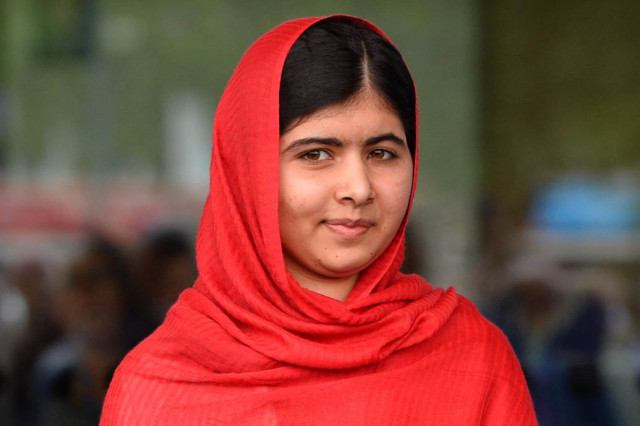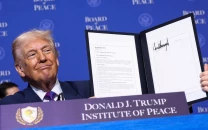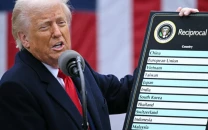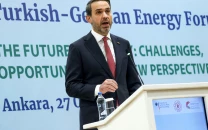Cause célèbre?: Nobel Peace Prize - prestige, outrage and controversy
All eyes on Oslo as Pakistan weighs in on Malala’s nomination.

Malala has been nominated for her tireless efforts to promote women’s education, despite being shot by the Taliban. PHOTO: AFP
Since its inception, the Nobel Peace Prize has brought controversy. It is hardly fitting that the prize allotted to person or organisation that has done the most ‘for the holding and promotion of peace’ was started by the man who invented dynamite.
And like Alfred Nobel himself, the Nobel Prize seems to hold the contradictions between the world as it should be – and the world as it is.
This year is no different, but it is an important one for Pakistan. Malala Yousafzai’s nomination as well as her possible win has divided the country: many contest her nomination, more oppose if she wins. The winner of the Nobel Peace Prize will be announced in Oslo, Norway, today (Friday) at 11am Central European Time (CET).
Malala has been nominated for her tireless efforts to promote women’s education, despite being shot by the Taliban. But many in Pakistan have displayed at best ambivalence and at worst suspicion towards the 16 year old.
Jamiat Ulema-e-Islam-Sami leader Maulana Samiul Haq has said that Malala has been ‘hijacked’ by the West. Meanwhile, at online forums, including social media networks, many people allege that she is a Western stooge or agent.
To these allegations, she replies, “Pakistanis can’t trust (anyone). They’ve seen in history that people, particularly politicians, are corrupt. And they misguide people in the name of Islam.”
The noble Nobel Peace Prize?
The inherent nature of the Peace Prize makes it open to criticism, no matter who the winner is.
Some critics point to the implicit Orientalism within the processes and selections of awardees. An ostensibly western organisation that cherry picks the movements and individuals it likes against the states it does not, they say.
In 2010, the Chinese Foreign Ministry said, ‘Norway’s selection’ of the Chinese dissident Liu Xiaobo ‘will bring damage to two-way relations’ between Norway and China. The Chinese government had a similar reaction to the Dalai Lama when he won the prize.
Western award-winners have been subject to similar controversy. Nobel Committee Secretary Geir Lundestad admitted that the award to Henry Kissinger and Le Duc Tho in 1973 has been the one ‘most criticised’. Henry Kissinger, the US National Security Adviser at the time, was conducting a war in Vietnam and a secret war in Cambodia. Meanwhile, Le Duc Tho, the leader of the Vietnam Communist Party refused to accept the prize, citing that “the peace has not really been established”. Kissinger is also criticised for turning a blind eye to atrocities taking place in East Pakistan during the 1971 war.
More recently, US President Barack Obama was awarded the Prize only nine months into his first term of presidency in 2009. Even more surprisingly, Obama, who had just escalated the war in Afghanistan, defended his stance in his Prize acceptance speech in Oslo.
Many Nobel Prize winners, including Yitzhak Rabin, Nelson Mandela, Yasir Arafat, and Menachem Begin, have fought armed insurgencies and have been labelled terrorists at some point in their lives.
Conversely, there has also been controversy surrounding peace activists that have not been awarded the Prize, including Gandhi, the Czech poet Vaclav Havel, and Filipino politician Corazon Aquino.
Procedures
The Nobel Committee has strict, secretive procedures regarding the selection process. None of the nominees are revealed until 50 years after the Prize has been awarded. This means that no one can really know this year’s nominees, despite the hype.
The deadline for the nominations was February 1 and many people weigh in on the final decision, including past Nobel Prize winners, think tanks, serving politicians, university professors and members of the Nobel Committee.
This year, there is a record high of 259 nominations, including 50 organisations.
Published in The Express Tribune, October 11th, 2013.



















COMMENTS
Comments are moderated and generally will be posted if they are on-topic and not abusive.
For more information, please see our Comments FAQ